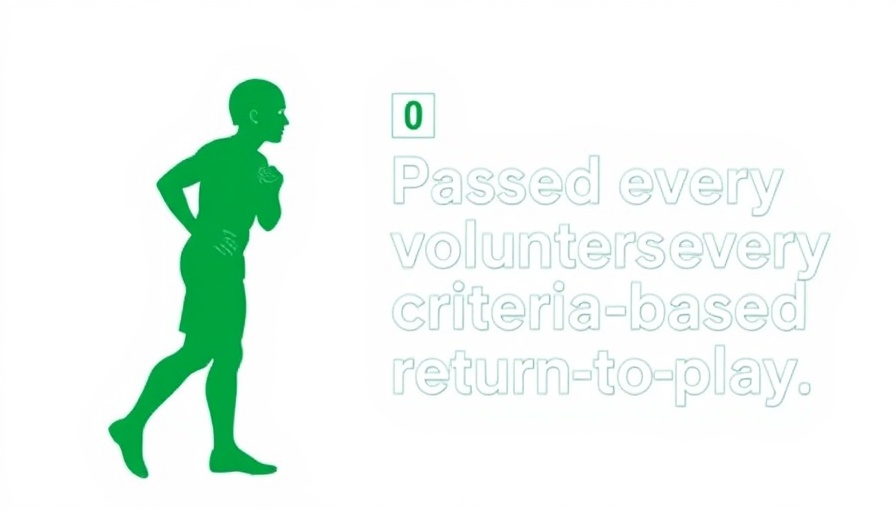
Why Traditional Return-To-Play Testing Might Fall Short
For many athletes, getting back on the field after an injury is a monumental milestone. After undergoing procedures such as arthroscopic Bankart repair, many patients expect to return swiftly and safely. However, recent discussions have surfaced in the medical community suggesting that conventional criteria-based return-to-play (RTP) testing may not be sufficient.
Consider an athlete who's eager to play again after a shoulder surgery. They take their RTP test, meet all the criteria, and get the green light from their doctor. This scenario plays out frequently, but is it a ticket to guaranteed safety?
The Complex Nature of Recovery
Returning to play is not just about ticking boxes. The nature of specific injuries, like those involving the shoulder, can make it challenging to ensure that a player is truly ready. While RTP tests often evaluate strength and range of motion, they might overlook critical factors like vision, proprioception, and mental readiness—elements that can significantly impact performance and safety.
A deeper understanding of biomechanics and patient behaviors is needed to create a more holistic approach. As concierge medical practice owners, this insight can be valuable for you. Creating a customized return-to-play protocol could enhance your patient engagement and position your practice as a leader in comprehensive care.
Patient-Centric Innovations in Sports Medicine
Recent advancements underscore the need for re-evaluating RTP protocols. Incorporating biofeedback mechanisms and personalized rehabilitation programs can offer a more nuanced perspective of an athlete's readiness. A personalized approach tailored to individual recovery rates—not just standard metrics—could dramatically shift the way you handle post-injury protocols.
For instance, integrating technology that tracks movement patterns and recovery metrics can provide insights that traditional tests overlook. As a result, patients feel more supported and informed throughout their recovery journey, solidifying trust in your services.
Transformation through Education and Engagement
It's crucial that both practitioners and patients understand the limitations of traditional RTP tests. Education becomes a powerful tool, allowing you to empower your clients with knowledge about their recovery options. By engaging in discussions around comprehensive recovery techniques, you're not just aiding healing; you’re establishing long-term relationships built on trust.
These proactive steps foster a sense of community, turning your practice into a trusted source of knowledge. Such strategies not only promote patient loyalty but also attract new clients eager for a more engaging healthcare experience.
Final Thoughts: Navigating a New Era of Care
As the landscape of sports medicine evolves, it's essential to reevaluate how patients are assessed for return-to-play readiness. By embracing innovative practices and prioritizing patient education, concierge medical practices can stay ahead in a competitive market. Your commitment to excellence can transform patient experiences, ensuring every individual receives the best possible care.
Your practice can lead the change. Consider enhancing your RTP protocols to prioritize individualized care that resonates with your patients. Building on these foundations can elevate your reputation as a top-tier concierge practice and foster a deeper connection with those you serve.
 Add Row
Add Row  Add
Add 






Write A Comment